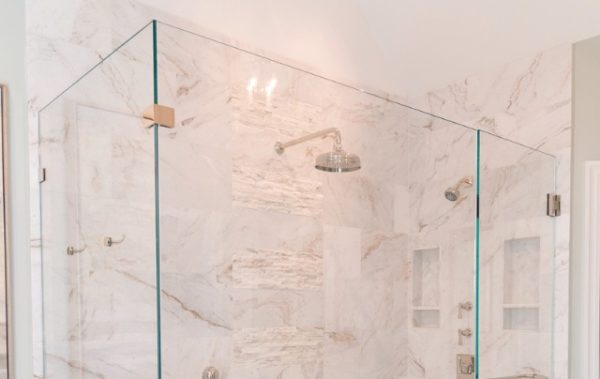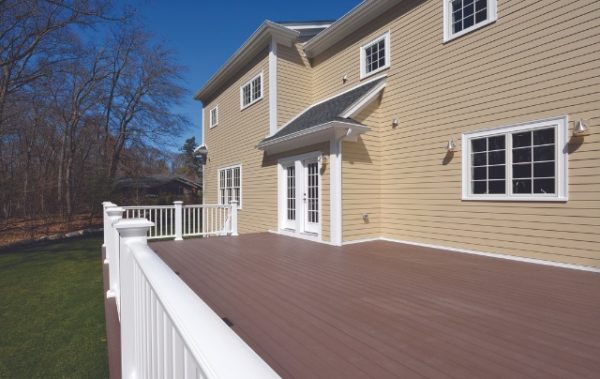Garage Door Buying Guide
Categories: Garages

Garage doors these days do much more than just go up and down. If you’re looking to replace your garage door or are pondering selling your house, think about all the garage door does for you. It lends a great deal of curb appeal to your house, provides security for your belongings and can affect the energy efficiency of your home’s “ecosystem.” Homeowners who are thinking about selling their house should consider that, according to Remodeling Magazine’s “Cost vs. Value 2015 Report,” next to upgrading your front door or adding a stone veneer to your home, a new high-end garage door has the third-highest return on investment. Choosing a door wisely will pay off in enhanced style for your home and money in your wallet.
Innovations in garage-door technology have impacted how homeowners use their garages. For instance, there are motorized garage-door screens that slide down on a track like a normal garage door and allow airflow throughout the garage—but keep bugs out, allowing you to use your garage as a work space, craft room or area for your pets. And garage-door opener battery
back-up systems assure that you can access your garage during a power outage. There are also garage doors that have in-house monitors to alert you if the door has been left open accidentally at night, avoiding the possibility of theft or vandalism. Some even offer exterior keypads with fingerprint-recognition technology, so you don’t have to remember yet another password or locate a lost remote control. High-end doors can be operated remotely by a Smartphone—you can check to see that the door is closed or when others have accessed the garage, which can be handy if Fido makes a break for it or a family member is locked out.
One of the most important factors to consider is how thick the door is. Door thickness, in manufacturer lingo, is measured in “gauges.” The higher the gauge, the thinner the door—thus, a 27-gauge door is a lower-quality door than a 24-gauge door, which is a very thick door. That’s why you will find shorter warranties offered with high-gauge doors—the manufacturer knows that the door won’t stand up to the elements and wear and tear for long. If you spend the extra money on a low-gauge door, you will be rewarded with a long warranty, typically about 10 years.
Most people open and close their garage door about six times a day, which eventually can cause wear and tear on it. Most doors are built to go up and down a total of 10,000 times in their lifetime. Do the math—that means you can expect your garage door to have a shelf life of about five or six years. In the meantime, have the door inspected every year to provide peace of mind, knowing that the door hasn’t been compromised by high winds or has maintenance issues that might cause it to work improperly.
It’s important to recognize that the installation of a new garage door is not for a DIYer. These doors are heavy and proper installation is critical to avoid dangerous accidents as you and your family come and go from the garage.
GARAGE DOOR COMPARISION CHART – Click to download
Garage Door Safety
According to the International Door Association, every year approximately 30,000 people are injured in an accident that involves a garage door, which could be prevented by annual maintenance checks.
If you garage door was installed before 1993, it’s important to get it checked out. Since then, the Consumer Product Safety Commission required that all automatic garage-door systems have a safety reversing or automatic-off system. To get more information, go to GarageDoorCare.com.
Overhead Door Company of Atlanta | OverheadDoorAtlanta.com
Builder Specialties, Inc / CR Home | BuilderSpecialties.net
Related Posts

Classy Courtyard
March 15, 2011
No Comments

2020 Kitchen & Bath Design Contest: Bath Winner, Creative Living
November 12, 2020
No Comments

A Double-Duty Deck Design
May 6, 2019
No Comments
Popular
Recent
Popular

Award-Winning Kitchens, Baths, Interior Design and More
March 4, 2022

Atlanta’s NKBA Designs of Distinction 2019 Winners
October 30, 2019

100 Things to Know Before You Remodel
June 26, 2017
Recent

What’s the simplest way to upgrade your window treatments?
February 27, 2024


What does the warranty cover when it comes to a siding project?
February 27, 2024





